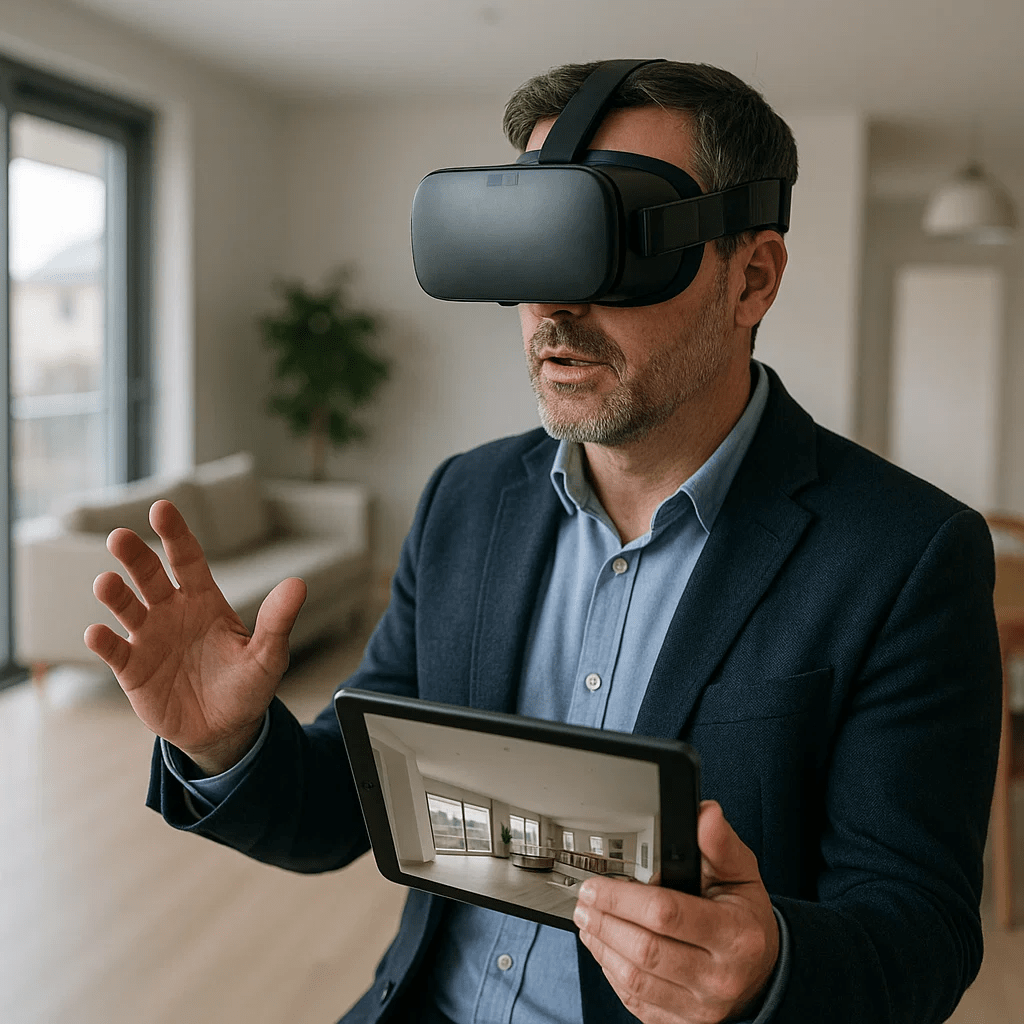The real estate industry is undergoing a digital transformation, and Virtual Reality (VR) is at the forefront of this revolution. By providing immersive, interactive property showings, VR is reshaping how buyers, sellers, and agents experience real estate transactions. As a real estate coach, helping agents integrate VR technology can give them a competitive edge in today’s digital marketplace.
Why Virtual Reality is a Game-Changer in Real Estate
VR enhances the real estate experience by:
- Providing 360-degree virtual tours that allow buyers to explore properties remotely
- Saving time for both buyers and agents by reducing the need for in-person showings
- Enhancing marketing efforts with visually engaging property presentations
- Expanding the buyer pool by enabling international and out-of-state buyers to view homes
Key Applications of Virtual Reality in Real Estate
1. Immersive Virtual Property Tours
VR-powered tours allow buyers to walk through properties as if they were there in person. Top VR tour platforms include:
- Matterport
- EyeSpy360
- Asteroom
2. 3D Floor Plans and Virtual Staging
VR can generate detailed 3D floor plans and virtually stage empty homes, making properties more appealing to buyers. Recommended tools include:
- BoxBrownie
- Virtual Staging Solutions
- RoOomy
3. Remote Collaboration for Agents and Buyers
VR allows agents to host guided virtual tours, answering buyer questions in real time without requiring travel. Tools like:
- Zoom with VR integrations
- Kuula
- CloudPano help facilitate seamless virtual interactions.
4. Enhanced Pre-Construction Sales
For new developments, VR lets buyers experience a property before it’s built, increasing confidence in off-plan purchases. Top platforms include:
- EnvisionVR
- Yulio VR
- Archilogic
5. VR Headset Experiences for Showrooms and Offices
Real estate agencies can set up VR stations in their offices, allowing clients to explore multiple listings in one visit. Compatible VR headsets include:
- Oculus Quest 2
- HTC Vive
- Samsung Gear VR
The Future of Virtual Reality in Real Estate
VR technology is evolving rapidly, making property showings more efficient and engaging. As more buyers turn to digital solutions, agents who embrace VR will set themselves apart in an increasingly competitive market.
Conclusion
Virtual Reality is transforming real estate by offering immersive, time-saving, and highly interactive property showings. Agents who incorporate VR technology into their sales strategies can attract more buyers, close deals faster, and provide an enhanced customer experience. As a real estate coach, guiding agents on VR adoption ensures they stay ahead of industry trends and maximize their business potential.


